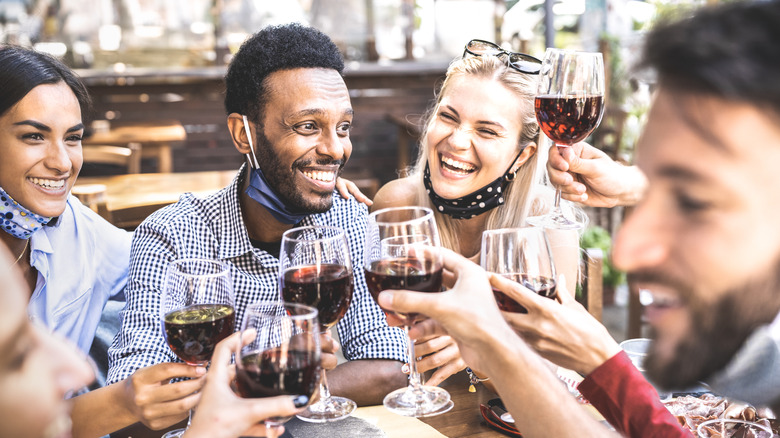What You Should Know About Nose-Only COVID Masks
Researchers from the National Polytechnic Institute in Mexico have developed a nose-only COVID mask that is designed to be worn while eating and drinking (via Bustle). The purpose of the nasal mask is to reduce the risk of infection during daily activities that would normally require you to remove your full face mask, like eating at a restaurant.
Indoor dining is a particularly high-risk activity because both your nose and your mouth are exposed in a confined space for an extended period of time, increasing your risk of either contracting or spreading COVID-19. Since the virus is primarily spread through infected droplets and aerosols that enter the nose and mouth, nose-only masks attempt to limit this risk by leaving only the mouth uncovered and exposed. Although nose-only masks are not meant to replace regular face masks, researchers claim that they will offer greater protection than simply wearing nothing at all.
Are nose-only masks effective?
While nose-masks may offer protection against COVID-19 in theory, there is currently no data to support their effectiveness. "I'm not sure covering your nose and not your mouth offers any documented reduction in [COVID-19] infection rate," Dr. Jonathan Baktari, the CEO of e7health.com, told Shape. "Theoretically, blocking one channel [the nose] and not the other [the mouth] may be beneficial, but there are no studies that I am aware of that show that."
COVID-19 can still be spread through saliva and infected cells in the mouth (via Bustle). Wearing a mask that only covers your nose is unlikely to provide any significant or substantial protection from the virus, especially in an environment where groups of unvaccinated people are talking and eating. That's why it's best to go to restaurants that adhere to social distancing guidelines and only take your mask off when you're actively eating and drinking, even if you're fully vaccinated. Until the United States reaches herd immunity, the virus will continue to circulate, leaving everyone vulnerable to outbreaks and surges.


